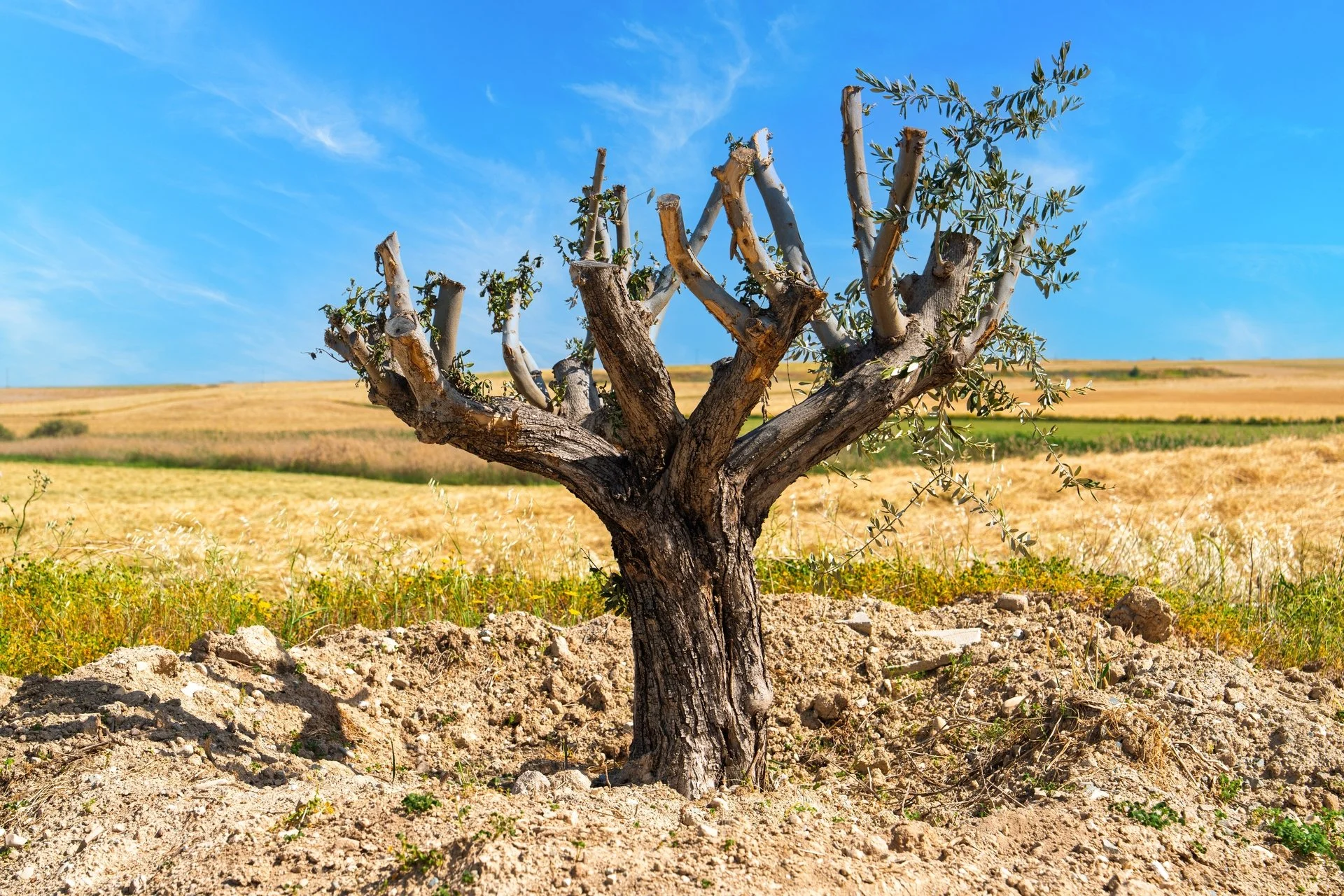The Enduring Olive Tree: Wisdom for Seasons of Hardship
I never developed a taste for olives—far too bitter and briny for my liking. But when it comes to olive oil, well, that’s a completely different story. Purchased in large vats from Costco, I consume this Mediterranean magic with alarming speed. A recent bottle provided a little education on the business of olive oil production and how it gets from the grove, to the bottle, to my wholesale warehouse. Thus began my study of the ancient, drought-defying, and nearly indestructible olive tree. Here’s what I learned.
Across the Mediterranean, olive trees stand as living witnesses to time. Some are thousands of years old, their gnarled trunks twisted by age, yet still they continue to produce fruit. They defy the wilderness, enduring harsh sun, long seasons of drought, and rocky soil. Even when cut back or burned to the ground, they have a way of sending up new shoots from their roots, refusing to be defined by loss.
There is something deeply comforting about the resilience of olive trees. They are a quiet reminder that survival is not about avoiding hardship, but about finding ways to grow in the midst of it.
Their beauty is not in perfection, but in the way their scars tell the story of endurance.
Olives themselves carry a lesson. Unlike other fruits, they cannot be eaten straight from the tree—the bitterness is too strong. They require time, soaking, and patience before they become nourishing. In a similar way, the difficult parts of our stories cannot always be digested as they are. Healing often requires space, gentleness, and process before what feels painful can be transformed into wisdom, compassion, or strength.
For centuries, the olive tree has been a symbol for meaning and hope. In ancient times, olive oil was a sign of God’s anointing—it lit the lamps in the temple and brought healing to the wounded. The olive branch is a universal sign of peace and reconciliation, a promise of new beginnings.
Olive trees can teach us much about the process of therapy. They are a reminder that
new life can emerge from places that feel barren,
that growth is not always quick but can be lasting,
and that which feels bitter may, with time and care, become something that sustains us—a promise of a new beginning.
Like the olive tree, we carry the capacity for resilience, renewal, and peace within us. Sometimes we simply need a safe space to tend to what feels broken and allow new growth to rise from the ashes.

